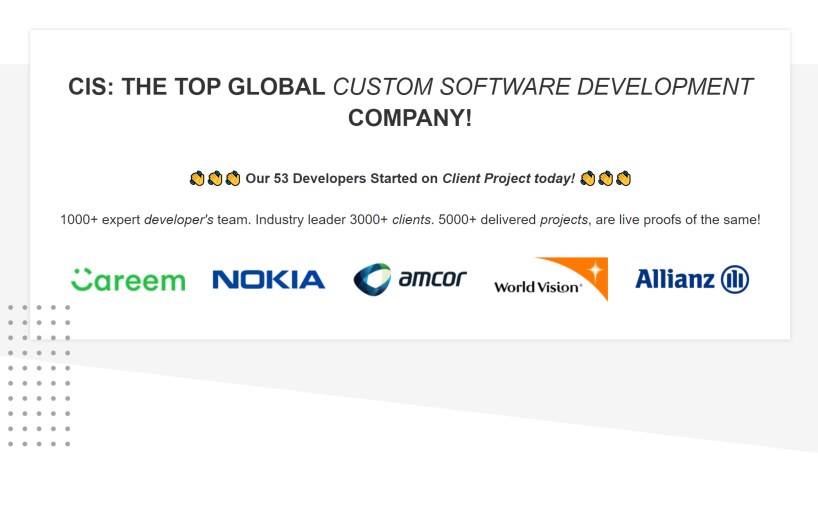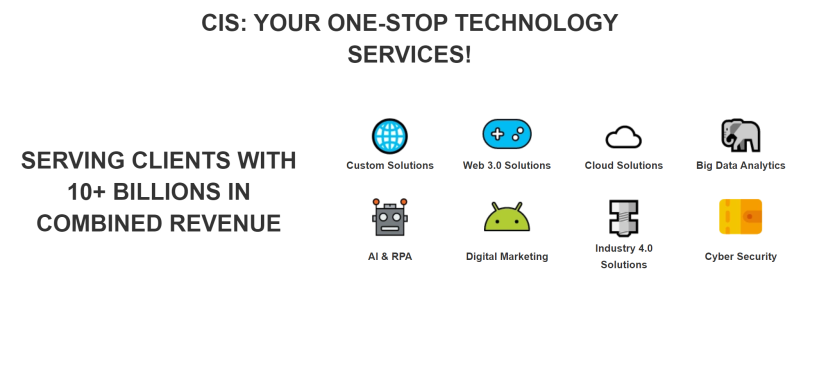Maximizing ROI: The Cost and Benefits of Adopting Sap For Supply Chain for Your Business
- SAP for supply chain - Detailed Analysis by Enterprise Solutions Experts



Why Mid-size Companies and Enterprises needs SAP For Supply Chain:
SAP for supply chain is a powerful suite of integrated applications that can help mid-size companies and enterprises to manage their entire supply chain operations more efficiently. It provides an end-to-end solution that covers all aspects of the supply chain, from procurement and inventory management to order fulfillment and delivery. By using SAP for supply chain, businesses can reduce costs, improve customer service levels, increase agility in responding to market changes, identify areas where improvements are needed, and gain real-time visibility into their entire operation. This helps them make better decisions about how to optimize their resources for maximum efficiency and profitability.
Benefits of using SAP For Supply Chain in Mid-size companies and Enterprises:
1. Improved Visibility:
SAP provides real-time visibility into the entire supply chain, allowing companies to quickly identify and respond to any changes or disruptions in the process. This helps improve efficiency and reduce costs by minimizing delays and improving accuracy of orders.
2. Streamlined Operations:
By automating manual processes, such as inventory management, order processing, shipping & receiving and more, SAP enables mid-size companies to streamline their operations for greater efficiency.
3. Reduced Costs:
With improved visibility into the supply chain network comes increased cost savings due to reduced errors, fewer delays in production cycles and better optimization of resources across departments within an organization.
4. Increased Productivity:
Automation of key processes allows employees to focus on more important tasks that require a higher level of expertise while reducing time spent on mundane tasks like data entry or manual calculations by up to 70%.
5. Enhanced Customer Experience:
By providing customers with accurate information about product availability and delivery times through automated systems powered by SAP solutions, businesses can ensure a smooth customer experience throughout the entire buying journey which leads to increased loyalty levels over timeDetailed Features of SAP For Supply Chain for Mid-size companies and Enterprises:
1. Automated Demand Planning:
SAP for Supply Chain enables businesses to automate their demand planning process, allowing them to better forecast and plan for future needs. This feature also helps ensure that the right inventory is on hand when needed.
2. Real-Time Visibility:
With real-time visibility into all aspects of the supply chain, companies can quickly identify any potential issues or delays before they become a problem, helping them remain agile in an ever-changing marketplace.
3. Warehouse Management System (WMS):
SAP's WMS provides comprehensive control over warehouse operations with features such as order picking, packing and shipping optimization, barcoding capabilities, automated replenishment rules and more.
4. Advanced Transportation Management (ATM):
The ATM module allows users to optimize their transportation costs by managing routes and carriers in real time while ensuring compliance with regulations like CTPAT/AEO requirements and other industry standards.
5. Supplier Relationship Management (SRM):
SRM enables companies to manage supplier relationships across multiple channels in one centralized system while improving collaboration through enhanced communication tools like RFQs and PO tracking functionsWho are the Users of SAP For Supply Chain:
SAP for supply chain is used by a variety of customers, including manufacturers, distributors, retailers, and logistics companies. It is also used by organizations in industries such as automotive, chemicals and petrochemicals, consumer products, energy and utilities, healthcare and life sciences, high tech manufacturing and distribution services.
How to ensure Data Security and Compliance with SAP For Supply Chain:
1. Implement a comprehensive security policy:
Establish and enforce an effective security policy that covers all aspects of data handling, from access control to data encryption and authentication. This should be tailored to the specific requirements of SAP for Supply Chain applications.
2. Monitor user activity:
Utilize logging features in SAP for Supply Chain to track user activities and monitor any suspicious behavior or unauthorized access attempts. Ensure appropriate alerts are triggered when potential threats are detected so they can be investigated promptly.
3. Encrypt sensitive data:
Use strong encryption algorithms such as AES 256-bit or higher to protect confidential information stored within the system, including customer records, financial details and other personally identifiable information (PII).
4. Regularly update systems:
Keep all software components up-to-date with the latest patches and security updates released by SAP, as well as third party vendors whose products may interact with your supply chain system in some way, such as antivirus programs or firewalls.
5. Educate employees about compliance regulations:
Make sure everyone involved in managing your supply chain is aware of relevant laws and regulations surrounding data privacy, such as GDPR or HIPAA if applicable, so they can take appropriate steps to ensure compliance at all timesHow SAP For Supply Chain can increase organization Productivity, Agility, and Profitability:
SAP for supply chain can increase organizational productivity, agility, and profitability by streamlining processes and improving visibility across the entire supply chain. It provides real-time data on inventory levels, customer demand patterns, supplier performance, pricing dynamics, and more. This allows organizations to make better informed decisions about their operations which leads to improved efficiency and cost savings. Additionally, SAP for supply chain enables organizations to respond quickly to changing market conditions with its powerful analytics capabilities that provide insights into potential opportunities or threats in the marketplace. Finally, it helps organizations reduce risk by providing automated alerts when predetermined thresholds are exceeded or breached.
How to Measure KPIs and increase Benefits of implementing SAP For Supply Chain in Mid-size companies and Enterprises:
1. Define key performance indicators (KPIs) that are relevant to your business and the implementation of SAP for supply chain. Examples include order fulfillment time, inventory accuracy, cost savings, customer satisfaction levels, etc.
2. Track KPIs before and after implementing SAP for supply chain to measure its impact on your organization.
3. Analyze the data collected from tracking KPIs in order to identify areas where improvements can be made and benefits gained from using SAP for supply chain can be maximized.
4. Utilize best practices such as process automation and optimization techniques to ensure maximum efficiency when using the system's features and toolsets available with SAP for supply chain solutions .
5. Monitor KPIs regularly in order to ensure that any changes or updates made within the system are having a positive effect on your business operations and goals set out by management teams .
How SAP For Supply Chain can increase Employee Morale in your organization:
SAP for supply chain can increase organization employee morale by providing employees with the tools and resources they need to be successful. For example, SAP for supply chain can help streamline processes, reduce manual data entry tasks, provide real-time access to inventory information, and allow employees to quickly identify areas of improvement in order fulfillment. This helps employees feel more empowered and motivated to do their best work. Additionally, when organizations use SAP for supply chain solutions they often experience increased efficiency which leads to improved customer satisfaction and higher profits - both of which are positive indicators that contribute positively towards employee morale.
How SAP For Supply Chain is Better than its Competitors:
SAP for Supply Chain is better than its competitors because it offers a comprehensive suite of supply chain solutions that can be tailored to meet the specific needs of any organization. It provides an integrated platform that allows users to manage their entire supply chain process, from planning and forecasting through production and delivery. Additionally, SAP for Supply Chain offers tools such as analytics, artificial intelligence (AI), machine learning (ML) and Internet of Things (IoT) capabilities to help optimize performance across the enterprise. The system also has powerful predictive analytics capabilities which allow users to anticipate future demand more accurately and make informed decisions about inventory management, pricing strategies, customer service levels, etc. Finally, SAP's scalability makes it easy for companies to grow without having to invest in new systems or software packages.
Cost to Develop & Implemention of SAP For Supply Chain:
The cost of developing and deploying an SAP for supply chain system will vary depending on the size and complexity of your organization's needs. Generally, a basic system can range from $50,000 to $500,000. However, larger organizations may require more complex systems which could cost upwards of several million dollars. Additionally, you should factor in the ongoing maintenance costs associated with any software solution that you choose.
Why outsourcing implementation services for SAP For Supply Chain is better for Mid-size companies and Enterprises:
Outsourcing implementation services for SAP for supply chain is beneficial to mid-size companies and enterprises because it provides access to a team of experienced professionals who are familiar with the software, can provide guidance on how best to configure the system, and can help ensure that all components of the solution are properly integrated. This saves time and money since these tasks would otherwise need to be done in-house or by an expensive consultant. Additionally, outsourcing allows companies to focus their own resources on other areas such as sales, marketing or product development. Finally, having a third party manage the entire process ensures that any potential issues are identified quickly and resolved efficiently.


